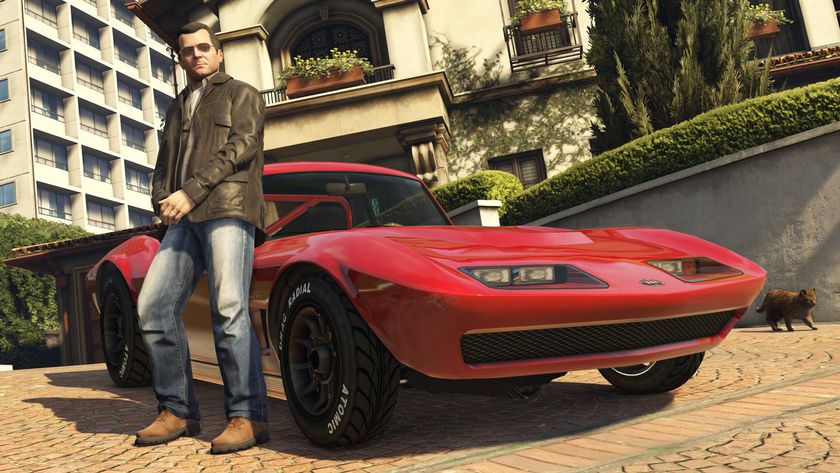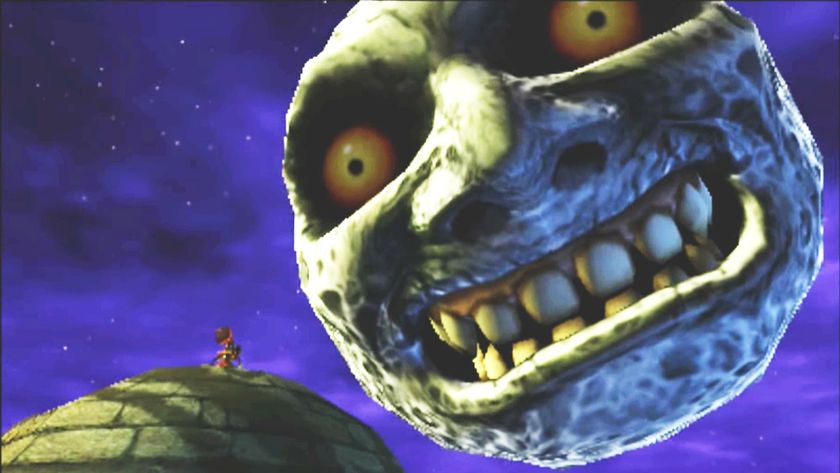GhostWire: Tokyo brings Karate, magic, and classic ghost stories together for this unique PS5 thriller
Big in 2021: Tango Gameworks steps away from survival horror in GhostWire: Tokyo, its first game for PS5
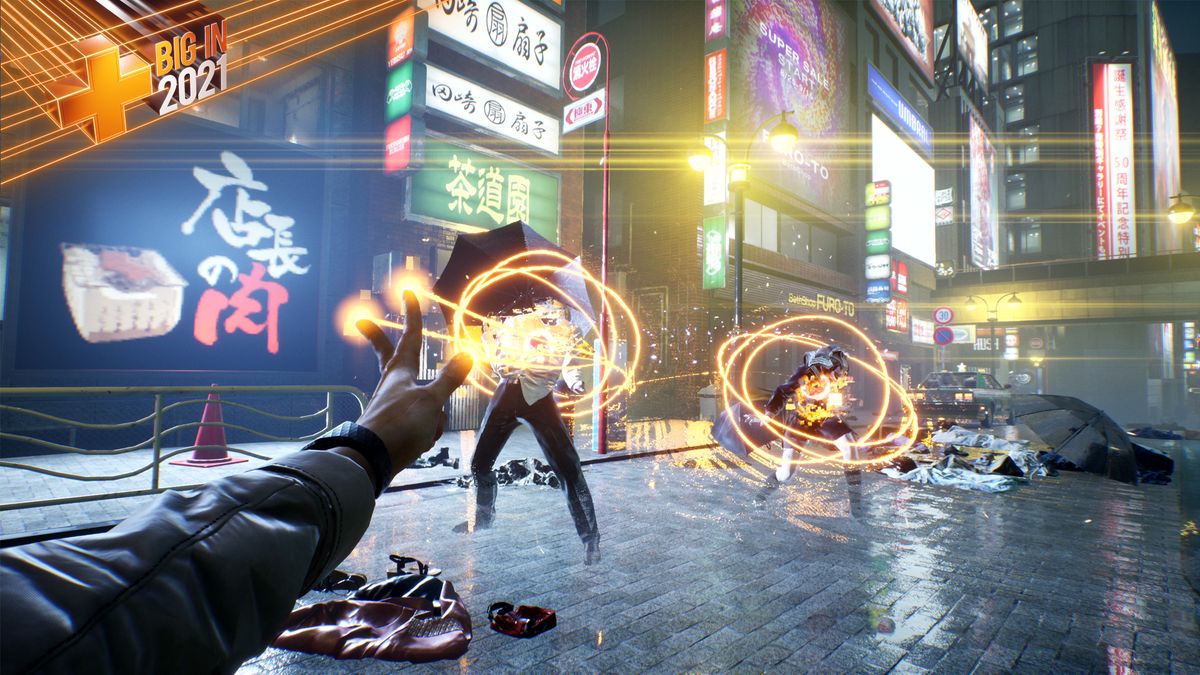
With GhostWire: Tokyo, Tango Gameworks is attempting to blend the old with the new. It wants to deliver a supernatural and eerie action-adventure, one set in the heart of a neon-tinted Tokyo. This is a huge departure from the style of games the studio built its reputation on, with Tango best known for ushering in a new breed of survival horror with The Evil Within and its 2017 sequel. Instead, Tango is attempting to bring traditional Japanese ghost stories to life with a modern twist, all as it works to immerse you in an atmospheric world that will take full advantage of the PS5.
You can expect to see Tokyo as you've never seen it before as a result, with evil spirits known as Visitors overrunning the streets. The supernatural entities are said to embody and represent different aspects of life in the city, as well as humanity at large, and it'll be your job to help restore some order to the storied city. It may not be a horror in the Evil Within sense, but it's certainly going to give you a healthy dose of spectral spookiness.
Karate magic and glory kills
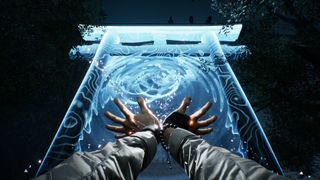
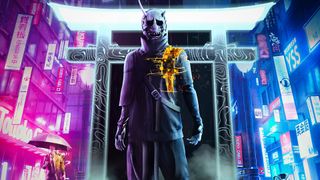
Game GhostWire: Tokyo
Developer Tango Gameworks
Publisher Bethesda
Platforms PC, PS5
Release 2021
Taking place after a mysterious event that causes 99% of the city's population to disappear, Tokyo is taken over by deadly spirits. It's up to you to find out what caused the population to vanish, and you'll have to fight the paranormal beings with an array of spectral abilities to accomplish that goal. GhostWire: Tokyo is a departure in more ways than one for the studio. Instead of the previously adopted third-person style in its other games, you'll be exploring the streets of the city and facing supernatural enemies from a first-person perspective. As well as adding to the immersive feel, this point of view also lends itself to the unique mix of combat styles Tango is trying to deliver.
If you're trying to get some sense of what the action will look and feel like, then you'll probably be interested to learn that GhostWire Tokyo's combat director is Shinichiro Hara, who previously worked on the glory kill combat system in 2016's Doom. By drawing inspiration from traditional Kuji-Kiri (a martial art form) hand gestures for the combat's movements, the combat team has worked to create a combo-based system that like "Karate meets magic," as Hara puts it.
"We want the player to feel like a badass, spell-casting, high-tech ninja exorcist defeating countless evil spirits," said Hara on the Bethesda Blog. "In order to achieve this, we chose intricate, deliberate hand gestures as the primary weapons, inside of simple guns. Unlike guns, our gestures allow us to put a lot more movement and personality into the player action as the player's hands are organic extensions of the character. This system is unique to GhostWire. It's Karate meets magic."
Hara adds that magic casters don't tend to be seen as figures who are physically strong, but that's not the case in GhostWire Tokyo. Instead, you'll be casting your magic with martial arts movements. If you saw the first gameplay trailer revealed during the PS5 showcase, you'll have already gotten a taste of what this fusion of karate and magic looks like.
Hara is also bringing the experience from crafting glory kills in Doom into the world of GhostWire with its own unique spin on takedown moves. As Hara explains, most takedowns require you to be close to the enemy to execute the move. In GhostWire, though, you'll be able to initiate a takedown of a spirit from a distance. The ghostly foes, which are known as Visitors, will expose their "core" when they're particularly vulnerable during a fight. When the core is exposed, you can pull it out with spiritual wires that can also be used to perform "chain-kills on multiple enemies."
Sign up to the 12DOVE Newsletter
Weekly digests, tales from the communities you love, and more
As a PS5 console exclusive that's also set to come to PC later this year, GhostWire looks set to use the next-gen features of Sony latest hardware to its full potential – especially when it comes to combat. As you wield your spectral abilities, you'll be able to feel the power of the magic martial arts through the DualSenses haptic feedback and adaptive triggers, along with 3D audio to add to the immersive experience.
Moving beyond survival horror
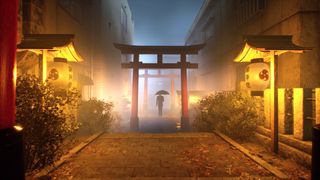
Tango Gameworks is taking its first steps into the realms of pure action with GhostWire: Tokyo. Thankfully, it's doing so in a way that is so typically Tango – offbeat, experimental, and standing in stark contrast to what most of the competition is trying to do in the same space. That means that, when GhostWire: Tokyo lands later this year, it will likely be a unique experience that will give us but a small bit of insight into what the makeup of the studio will look like as it looks beyond survival horror.
With a veteran team at the helm, and a unique take on modern meets traditional in both its combat style and its spirit foes, GhostWire: Tokyo looks and sounds as if it has all of the makings of one very intriguing upcoming action-adventure that's trying to do something a bit different.
Big in 2021 is GamesRadar's celebration of the new year. Every day, we will be exploring the most anticipated games on the near horizon with brand new previews and exclusive developer interviews.

I started out writing for the games section of a student-run website as an undergrad, and continued to write about games in my free time during retail and temp jobs for a number of years. Eventually, I earned an MA in magazine journalism at Cardiff University, and soon after got my first official role in the industry as a content editor for Stuff magazine. After writing about all things tech and games-related, I then did a brief stint as a freelancer before I landed my role as a staff writer here at 12DOVE. Now I get to write features, previews, and reviews, and when I'm not doing that, you can usually find me lost in any one of the Dragon Age or Mass Effect games, tucking into another delightful indie, or drinking far too much tea for my own good.
Most Popular






